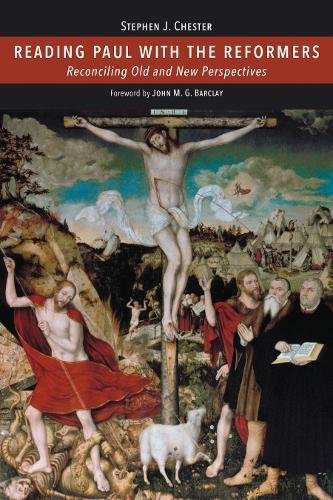Certainly one of the best books of the year that deals with both the New Testament and Protestant Reformation theology is Stephen Chester’s excellent study— Reading Paul with the Reformers, (Eerdmans, 2017, 500 pages). What is especially impressive about this study is that Chester is equally skilled in two different disciplines. He’s no one trick pony. This post begins a dialogue that will carry on through the rest of this month. Enjoy— BW3
—-
Ben: First of all thanks Stephen for a very well researched and written book helping us clarify the legacy of Luther and Calvin and Melanchthon, and how that’s been misinterpreted even unto today by Pauline scholars. This work took 11 years to write, due to various interruptions and changes in your life. What in the first place motivated a NT scholar to spend so much time in the playground of historical theologians and church historians? You buried yourself in the literature they deal with by trade and only a minority of this book involves interacting with other NT scholars and their views on things like justification, particularly in light of the so-called New Perspective on Paul.
Stephen: I came to a point where I could not see another way to make progress in my understanding of Paul’s letters. In the late 1990s as a doctoral student at Glasgow University I was working on some texts in Galatians. One day in the university library I happened to look at what Luther had to say about the verses I was working on and found myself thinking, “He’s not supposed to say that!” That experience of finding more in Luther, and something different in Luther, than I was expecting planted a seed. I had long been convinced of the value of the New Perspective rejection of stereotypes of Second Temple Judaism as a religion of works-righteousness, but when I read texts like Romans 4:1-5 or Philippians 3:9 I found the exegesis offered by New Perspective scholars unconvincing. There was something that did not tie together correctly and I began to wonder if, in rejecting trajectories of interpretation ultimately derived from the Reformation, contemporary Pauline scholarship had accurately understood what it was opposing. The only way to answer that question was to go back to the sixteenth-century sources. As will become clear to readers of the book I certainly do not believe that the Reformers were correct in all important aspects of their interpretation, but I do think that they have important exegetical resources to offer us as we attempt faithfully to interpret the same texts in and for contemporary contexts.













